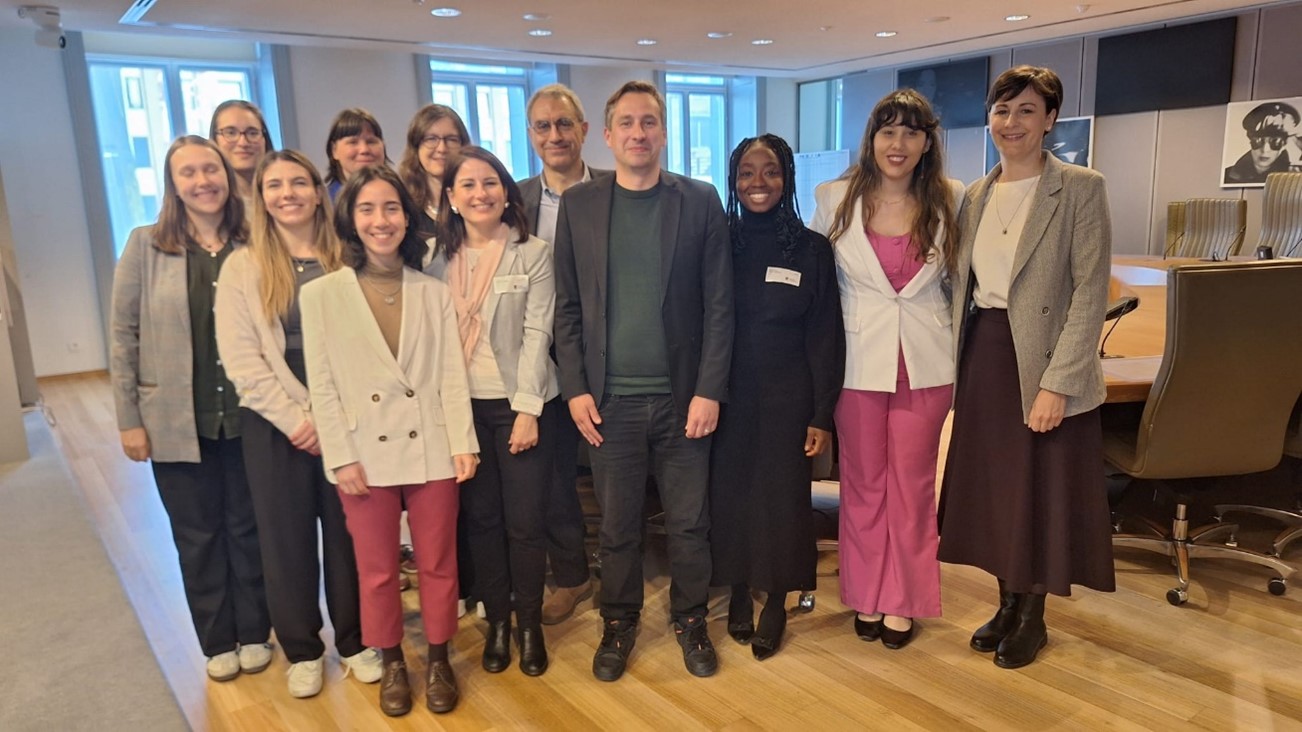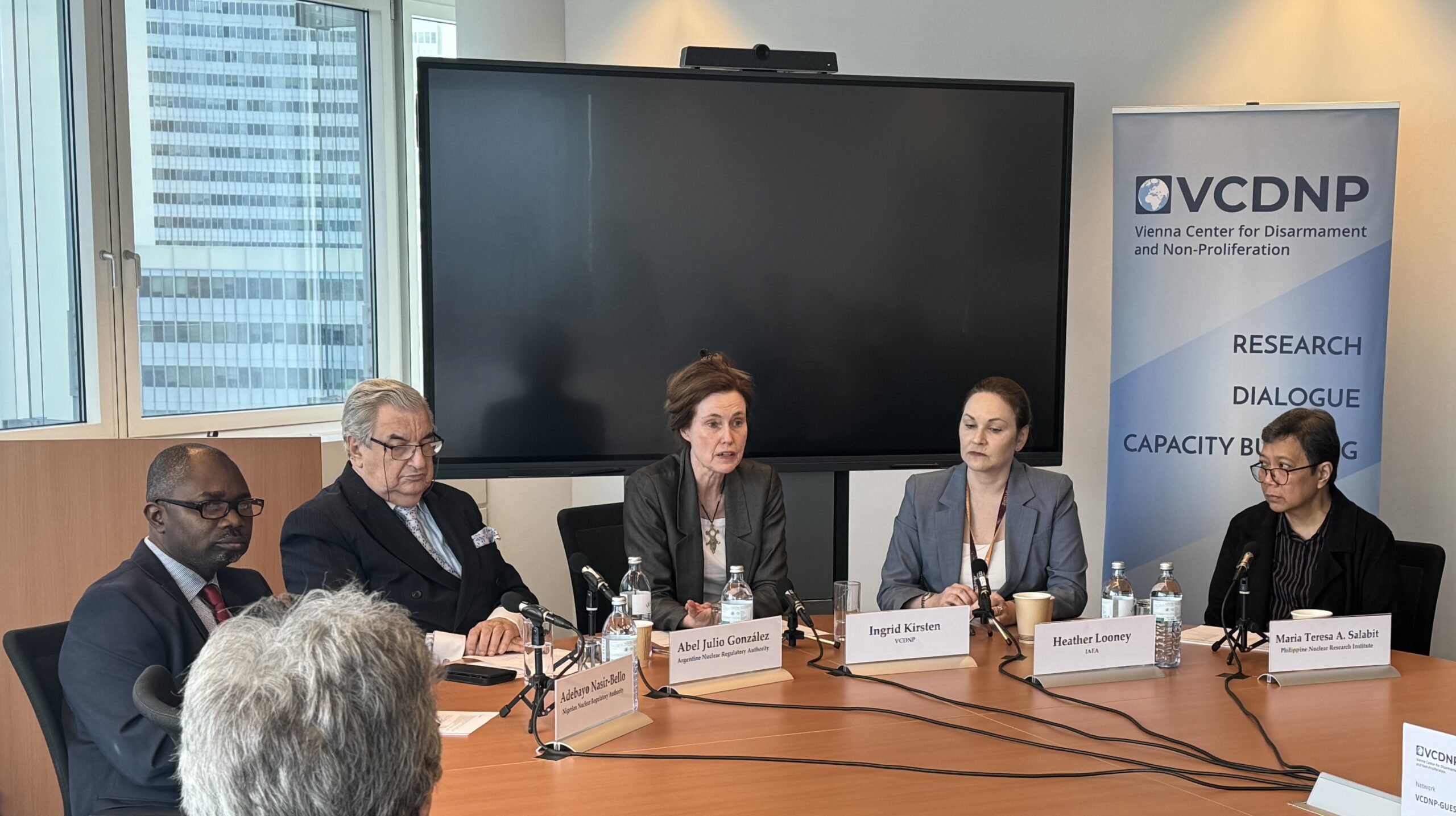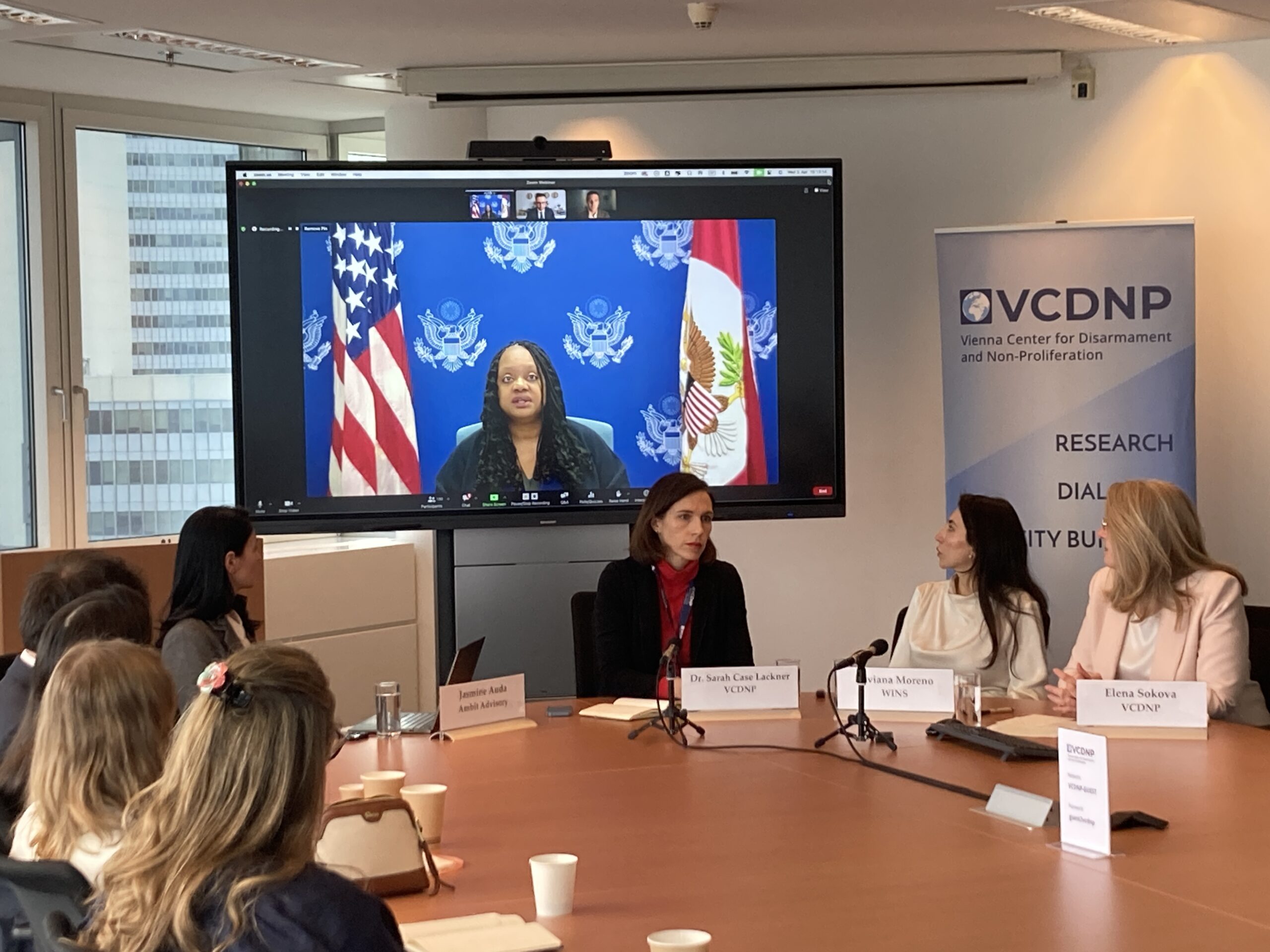
On 3 April 2024, the VCDNP hosted a hybrid panel discussion on the next generation and the future of nuclear security. The speakers provided a range of perspectives on the importance of the next generation for the future of nuclear security, and the need for nuclear security organisations and practitioners to facilitate the successful integration of young professionals into the nuclear security workforce.
Moderated by VCDNP Senior Fellow Dr. Sarah Case Lackner, the discussion was opened by VCDNP Executive Director Elena K. Sokova and United States Under Secretary of State for Arms Control and International Security Bonnie D. Jenkins. The speakers featured in the panel discussion were:
To open the discussion, Ms. Sokova highlighted the upcoming International Conference on Nuclear Security (ICONS)’s theme 'Shaping the Future'. She mentioned the ever-growing number of stakeholders defining the field, including what she dubbed the ‘Now Generation’ of young professionals.
Ambassador Jenkins touched on the increasingly perilous security environment and stated that nuclear security will play a key role in addressing many of its associated challenges. Further, successfully drawing on the talents of emerging nuclear security professionals will strengthen the field’s ability to face new and unforeseen threats. Looking forward, she highlighted the importance of the upcoming ICONS in facilitating international cooperation to tackle these threats, and stated that the IAEA’s ‘Nuclear Security Delegation of the Future’ has the potential to play a valuable role in this area. This platform will be launched at ICONS 2024.
Jasmine Auda highlighted two key ‘myths’ of nuclear security, the first being that it is not as burdened by the political challenges associated with other nuclear issues, notably, non-proliferation, and the second being that it is a particularly Western problem. Regarding the first myth, she noted that a number of states link nuclear security to non-proliferation and disarmament and see nuclear security as potentially challenging their access to peaceful uses of nuclear technology. Regarding the second myth, she observed that framing nuclear terrorism in the context of experiences like the September 11th attacks leads to a lack of awareness of its relevance to all states, and emphasised that nuclear security should be accepted as a global norm. Ms. Auda concluded by highlighting the importance of international cooperation for nuclear security and the relevance of the next generation in the acceptance of nuclear security as a global norm.
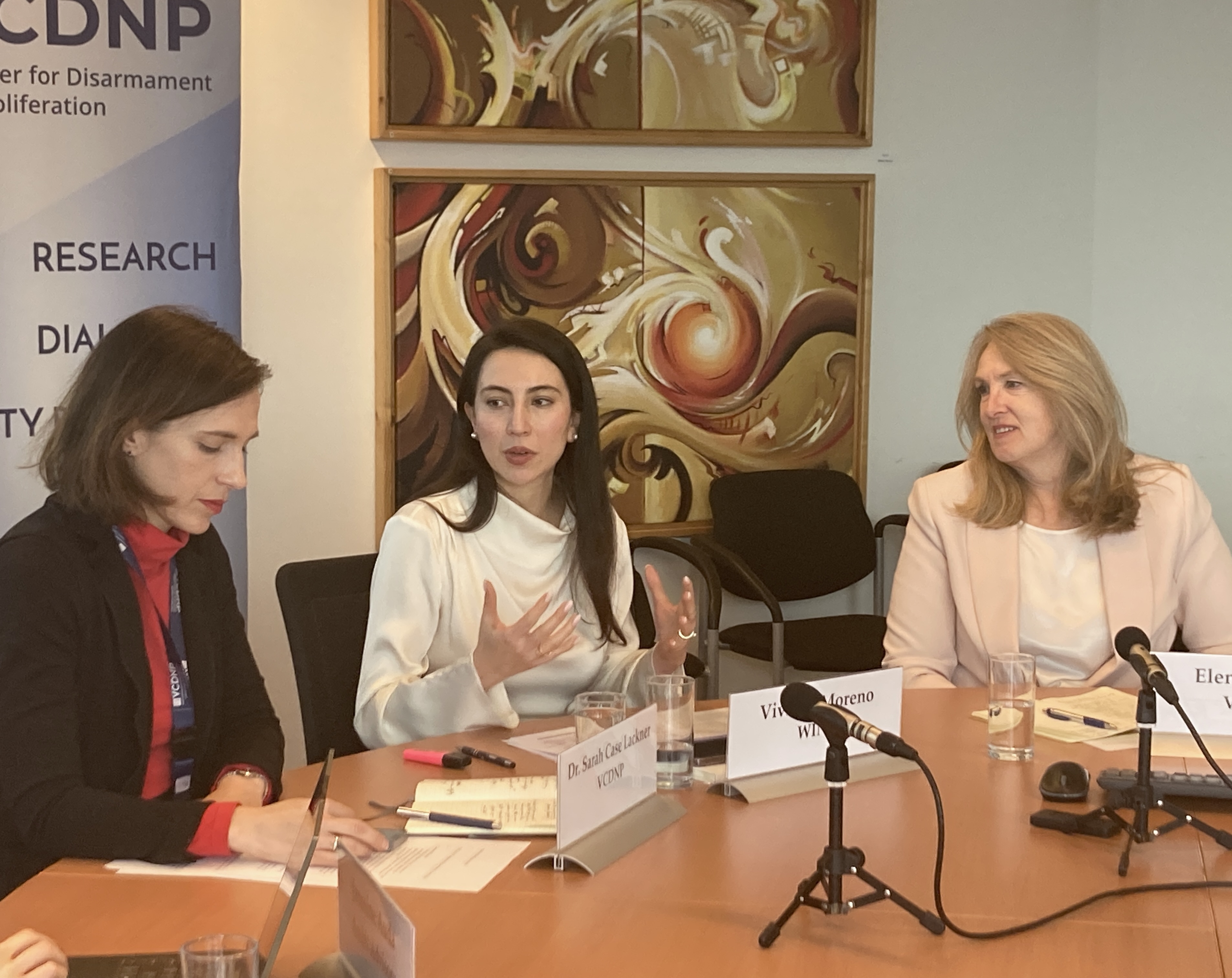
Viviana Moreno stated that diversity, equity, and inclusion (DEI) is often relegated to the margins in the nuclear field, but that diverse teams are more productive and are particularly adept at identifying unrecognised potential threats as well as formulating methods to tackle them. She identified a lack of awareness of nuclear security and a perception of there being limited opportunities as a particular obstacle for marginalised groups to pursuing a career in nuclear security. She called for a dialogue on intersectionality that would equip the nuclear security field with the tools to attract and retain a diverse cadre of qualified professionals.
Jack Brosnan concurred with Ms. Moreno on the importance of DEI in nuclear security, pointing out that work environments that do not recognise its relevance often fail to retain qualified experts. He highlighted the importance of making DEI a core part of the strategic planning processes of organisations active in nuclear security and elaborated on the power of public commitments to DEI from people in leadership positions as a crucial step in this direction.
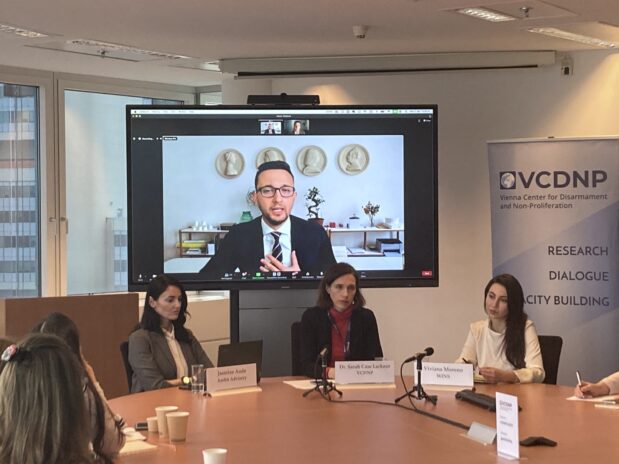
Ali Alkis, while underscoring his membership in the ‘now generation’ of professionals, observed that the use of phrases like ‘Next Generation’ and ‘Delegation of the Future’ can be counter-productive, since they sideline the current impact of this generation and relegate its role to a distant future. He pointed to new and potentially disruptive innovations, such as artificial intelligence, as an area where this generation will need to make an impact. He called for more recognition of regional differences in nuclear security, and for increased opportunities for young professionals to enter the field.
In response to a question regarding the perception that nuclear security means secrecy and the potential deleterious effects of this perception, Ms. Auda noted that linking nuclear security to other issues like achieving the Sustainable Development Goals has the potential to open up a discussion on this topic. In response to further questions, she stressed the importance of highlighting non-Western perspectives as well as seeing nuclear security as a global good, and underscored the ability of those with non-technical backgrounds to have an impact in the nuclear security field.
In response to questions on DEI in nuclear security, Ms. Moreno and Mr. Brosnan touched on the importance of effective mentorship to advance inclusivity in the field. They further highlighted the interconnectedness of nuclear security, safety, and peaceful uses issues and added that DEI is of particular importance when using artificial intelligence tools for nuclear security, as biases in in the data used to train AI can be identified more effectively by diverse teams.
Following the presentations, several questions were raised regarding the inclusion of emerging professionals in the nuclear security field. Mr. Alkis pointed out the variety of internships that could form a springboard to a career in the field, while Ms. Sokova acknowledged the issues of internships often being unpaid and not recognised as work experience. Mr. Brosnan added that investments are needed to shape the sector to attract and retain a diverse group of people, and Ms. Sokova stressed that mentorship both through formal programmes and informal networks is crucial to facilitating one’s entry into the field. Mr. Alkis then expressed hope that the expected nuclear renaissance may cause new opportunities in this field to emerge. Finally, Dr. Case Lackner underscored the importance of fostering a mentorship culture within the nuclear security community as a whole, as well as in individual organisations and expressed hope that this event will spark thinking on how a more diverse ‘now generation’ can help turn a more inclusive, truly global narrative on nuclear security into reality.
The VCDNP expresses its thanks to the United States Department of State for sponsoring this event.


